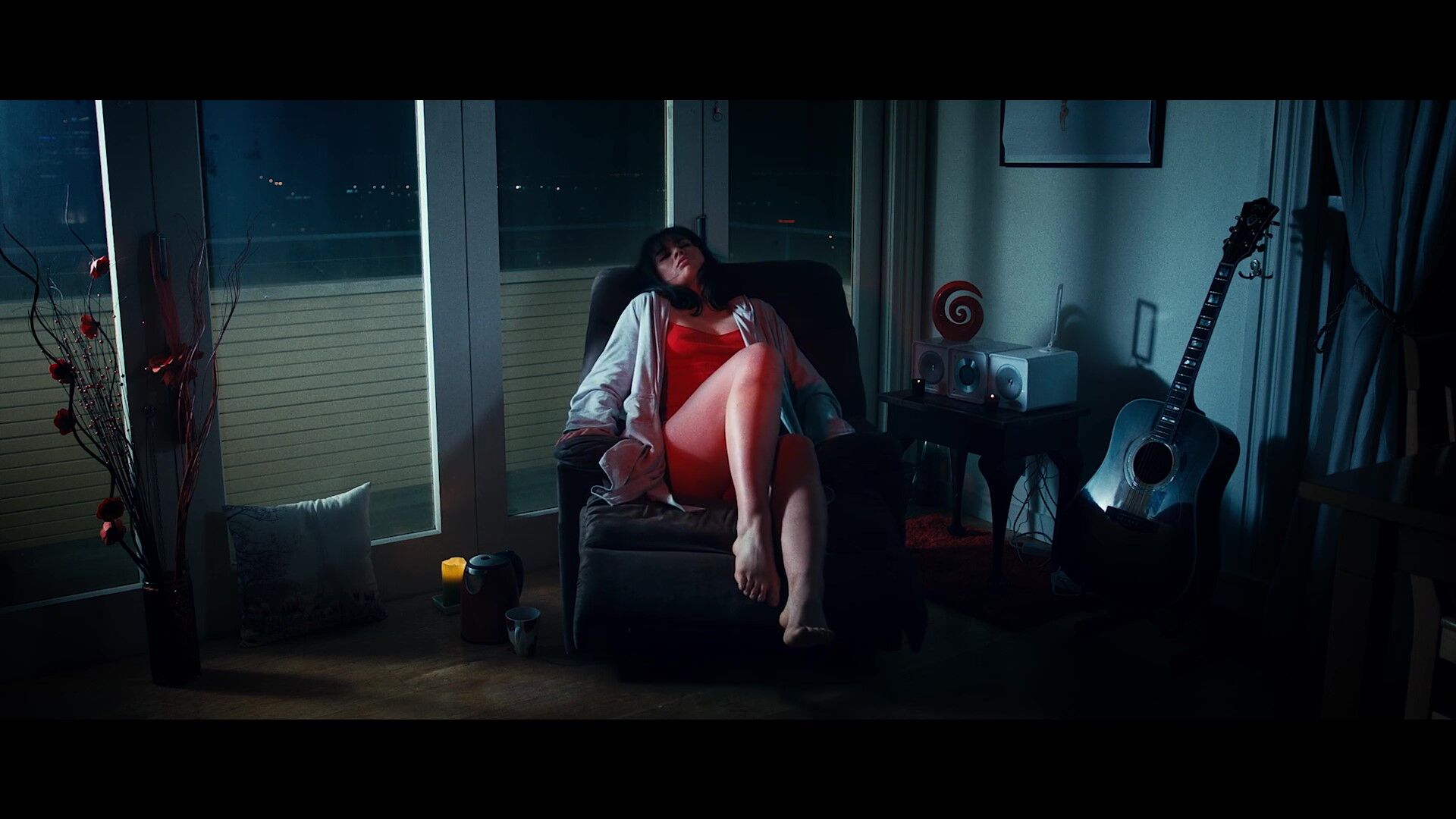[Review] Killer Sofa is a Silly Attempt at Cushion-Induced Horror
It’s hard to know what fever-dream inspired writer/producer/director Bernie Rao to create Killer Sofa. As the title says, the movie is about a possessed recliner and the prop department has done a stellar job of gluing two buttons to a couch, giving the previously inanimate furniture a face. But the film treads the line between fun parody and nonsensical exposition, which means it’s either going to be yet another forgotten indie horror flick or a cult classic. Only time (and distribution) will tell.
Set in New Zealand, Killer Sofa follows Francesca (Piimio Mei) a dancer who obtains a second-hand couch from a former admirer (Francesca attracts the unwanted attention of men like it’s a curse). Unfortunately, as soon as she moves the sofa into her apartment, strange things start happening and the couch reveals itself to be more than a simple Lazy Boy. As the death count rises and two cops, Inspectors Gravey and Grape (Jed Brophy and Stacey King) circle in on the sofa, it’s up to Fransesca and her best friend, Maxi (Nathalie Morris), to put an end to the sofa’s reign of cushion-induced terror.
What makes Killer Sofa all the more bizarre is the inclusion of Maxi’s grandfather, Rabbi Jack (Jim Baltaxe) who touches the haunted couch once and immediately announces that it’s possessed by a dybbuk. The dybbuk, or a Jewish possessing spirit, first came to the world’s attention in the early twentieth century with the production of S. Ansky’s Yiddish play of the same name. While accounts of dybbuk possessions exist as early as the sixteenth century, Ansky’s play brought the dybbuk into mainstream culture, though it certainly has not experienced the same level of popularity in the horror genre as Catholic demons.
Dybbuks are thought to be spirits of the dead who possess a living body and leave when their unfinished task on earth is complete. They have been the subject of few modern films, most notably The Unborn (2009) and The Possession (2012) – the latter inspired by the story of the “Dybbuk Box,” a supposedly haunted wine box sold on eBay. Rao’s choice to involve a dybbuk is a curious one, given that the film lacks any other references to Judaism.
Yes, Rabbi Jack is, in fact, a Rabbi…though he is never seen in a synagogue, praying, or even so much as stereotypically eating a bagel. Instead, his New York accent is probably director Rao’s cringe-worthy method of identifying the character as Jewish. Well, that and his “Trust Me I’m A Rabbi” coffee mug. Even his attempts to learn about the dybbuck ignore Jewish writing or mythology. Instead, he relies on a YouTube video.
Unlike most exorcism films featuring Catholic priests in elaborate robes and healthy doses of projectile pea soup, Killer Sofa borrows the dybbuk without giving much thought or consideration to its origins or theological connotations. And that’s unfortunate. Still, Rabbi Jack’s insistence that the sofa is inhabited by a dybbuk leads to an at-times funny second half that sees the sofa awkwardly move itself around Francesca’s apartment and murder people with its springs and inner mechanisms.
Ultimately, Killer Sofa is fun, especially if you’re a fan of absurdity and buckets of noticeably cheap fake blood. Perhaps Killer Sofa’s ultimate message is that used furniture might be cheap, but you never know what’s crawling around on the inside.
Maybe it really is better to stick with IKEA.


![[Review] Killer Sofa is a Silly Attempt at Cushion-Induced Horror](https://images.squarespace-cdn.com/content/v1/5b39608d75f9eef54c62c3f0/1569882962774-8YA9Q8WXEGL844DYED3C/7tlRiT0A.jpeg)


![[Review] The Curse of Buckout Road Disappoints](https://images.squarespace-cdn.com/content/v1/5b39608d75f9eef54c62c3f0/1569973445989-XK3427TX41O9AYVC9WJU/DRlpGhXQ.jpeg)
![[AYAOTD? Recap w/ Erin Callahan] 1.10 "The Tale of Jake and the Leprechaun"](https://images.squarespace-cdn.com/content/v1/5b39608d75f9eef54c62c3f0/1568340546013-XTH3LEOY5DVJ1EE3NCN0/1.10+Jake+and+the+Leprechaun.jpg)
![[Review] Replace Makes Beauty Routines Freaky](https://images.squarespace-cdn.com/content/v1/5b39608d75f9eef54c62c3f0/1570763215897-WS0W9K3AX2Z646AIPUPR/svZ2OliQ.jpeg)
![[Review] Midday Demons is Good but Feels Awfully Familiar](https://images.squarespace-cdn.com/content/v1/5b39608d75f9eef54c62c3f0/1574021496431-7K12DB20FR4CD7U2KC6Z/Midday_Demons_Poster.jpg)
![[Review] A Wakefield Project is All Over the Place](https://images.squarespace-cdn.com/content/v1/5b39608d75f9eef54c62c3f0/1583454575653-KR35ODBWD1QR4AZCXWE9/wakefield%2Bproject.png)